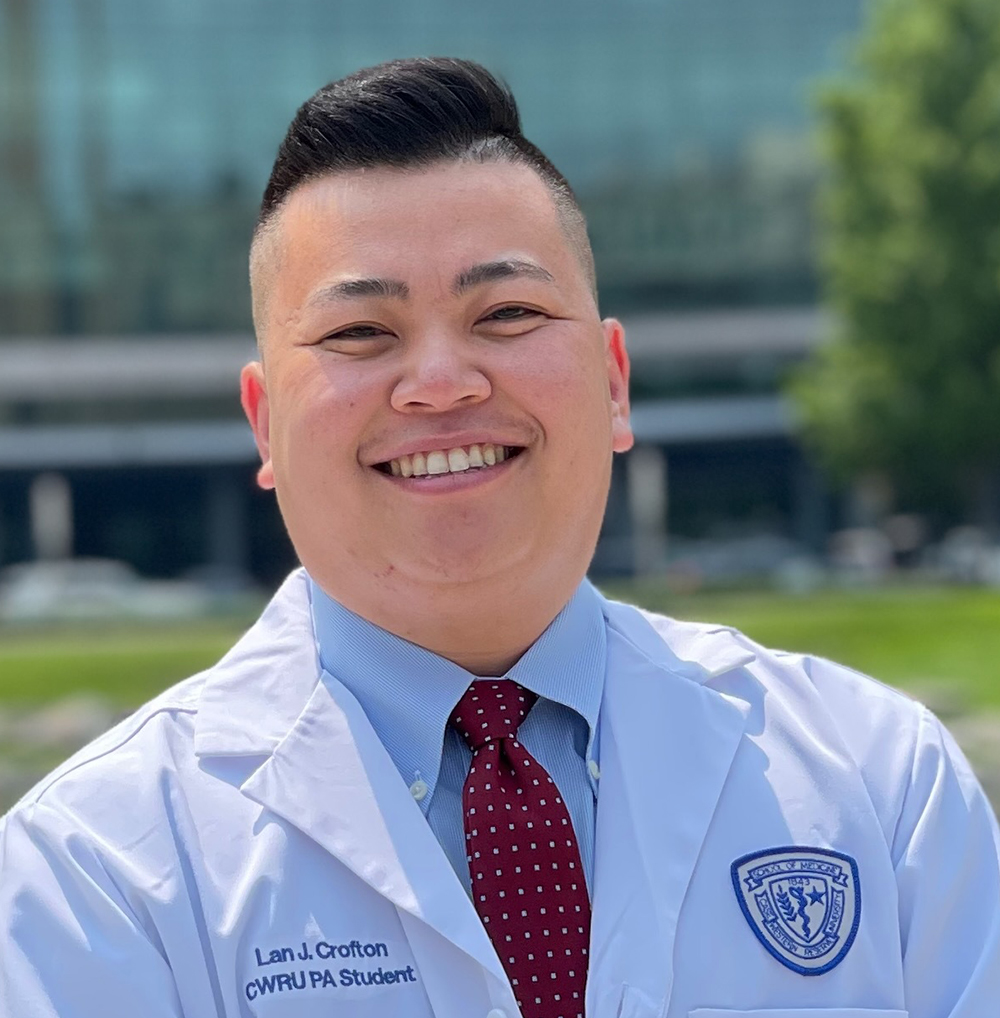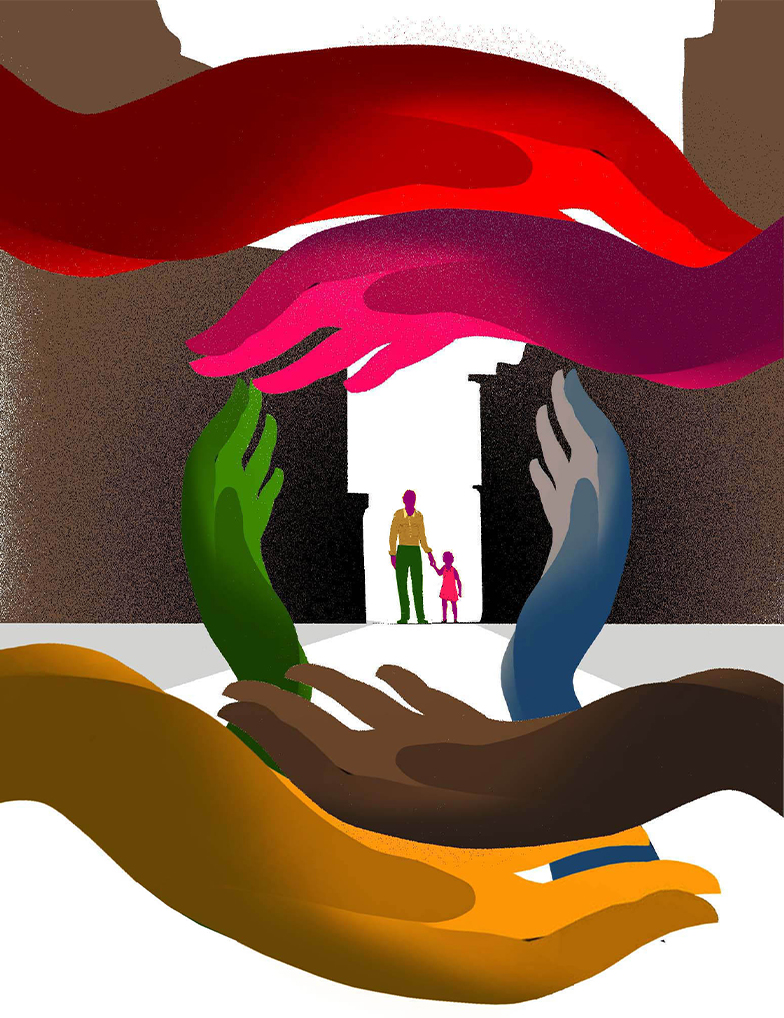features
Healthy Partnerships
 Lan Crofton
Lan CroftonThe potential to learn alongside peers and in partnership with the community inspired Lan Crofton to choose Case Western Reserve for a master’s degree in physician assistant studies.
And the university’s Collaborative Practice I Program provided just that opportunity. Each year, more than 500 students in medicine, nursing, dental medicine, social work, genetic counseling, psychology, speech-language pathology as well as those becoming physician assistants, work in interprofessional teams to complete projects designed by community partners.
“When I think about where I want to be down the line, working with patients and their families, I want to understand where they’re coming from,” said Crofton, who is scheduled to graduate this coming August.
Community expertise and experiences have become a growing part of the university’s curriculum for students pursuing advanced degrees in healthcare-related fields.
 Illustration: Brian Stauffer
Illustration: Brian Stauffer“Learning how to engage with people and be supportive of people who are different from ourselves is exactly what we need to do when we are healthcare professionals,” said Tyler Reimschisel, MD, founding associate provost in the Office of Interprofessional and Interdisciplinary Education and Research.
Last year, Crofton’s collaborative practice team created resources for future first-generation college students interested in pursuing healthcare careers. They partnered with Esperanza Inc., a nonprofit dedicated to improving academic achievement among local Hispanic students.
The team organized a diverse panel of healthcare professionals to introduce students to possible paths and help them practice networking skills.
—Tyler Reimschisel, MD, founding associate provost in the Office of Interprofessional and Interdisciplinary Education and Research
In addition, the group built a website with descriptions of different health fields and information about how to gain research experience and even request letters of recommendation.
“It truly exceeded my expectations,” said Germaine Peña, Esperanza’s manager of post-secondary initiatives.
Peña also praised the university’s focus on long-term community-student collaborations.
“We want the students to find purpose in serving the community since they will serve beyond Cleveland,” she said. “Ultimately, it’s a matter of making this world a better place together.”





